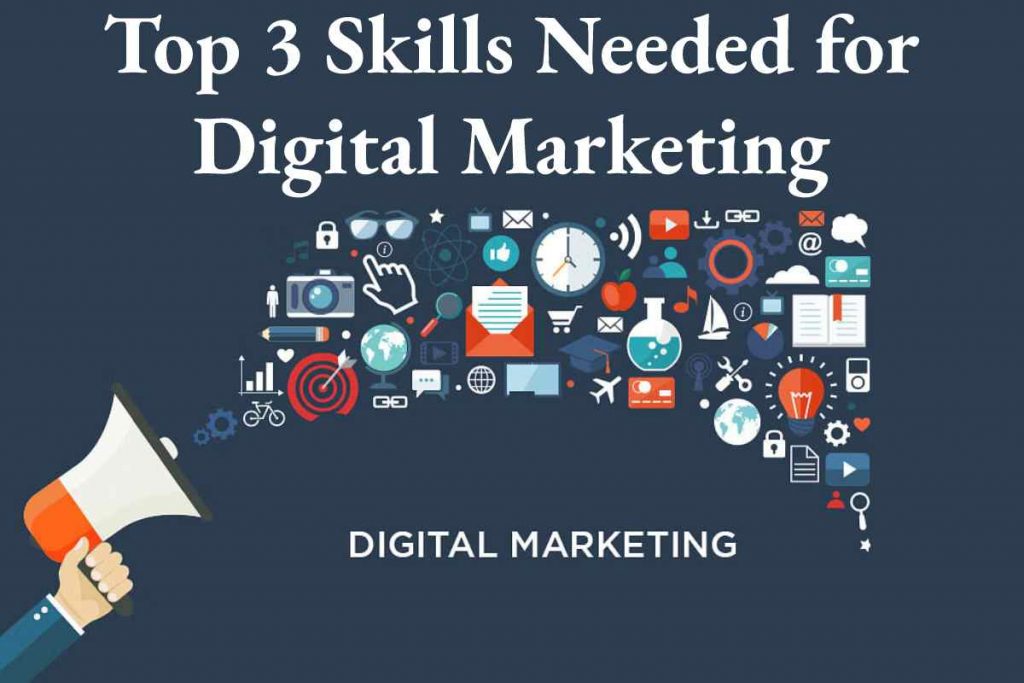Digital marketing is one of the most sought after forms of expertise for modern businesses. This is because so much of today’s culture and interactions occur digitally – whether on social media, through emails, or via search engines. It’s these kinds of platforms that a digital marketing professional will work with, and so if you want to get into digital marketing, you need to develop various skills pertaining to them.
Lots of businesses’ marketing strategies nowadays are purely digital in nature. For instance, TechQuarters – a company that provides IT support services in London – has found great success marketing their services digitally.
So, if you want to learn digital marketing, and find a job in the area, here are some skills that you should focus on.
Table of Contents
Top Skills
Digital marketing is a large field, and within it there will be people who specialise in the skills below. But that does not mean that you need to choose which one you want to specialise at the beginning of your career. It is actually worth learning a bit of all of these skills, so that you have a working knowledge of the various aspects of digital marketing.
Analytics
A big part of digital marketing is tracking and interpreting data. Between social media platforms, search engines like Google, and email, there is a vast quantity of data at one’s disposal. However, the more data there is, the harder it can be to interpret; and data that is not analysed correctly is useless.
In order to be skilled in analytics, you don’t need to do any hard data analysis yourself; you just need to know how to use the tools that are available – for instance, Google Analytics is the most widely used tool, and it is completely free to use.
As well as this, after you have analysed the data and gained insights, you need to have an active understand on how those insights relate to your brand, or the brand you work for. This will help you understand what actions to take to improve different aspects of your digital marketing strategy.
Search Engine Optimization
Search engine optimization, or SEO, is the way in which you make web content rank higher on search engines like Google, Bing, and Yahoo. Rankings refer to the way in which search engines decide how relevant content in their database is to specific queries.
As you undoubtedly know, you use a search engine by entering keywords, and the search engine presents you with content that is relevant to those keywords. If you want to find a bicycle repair shop in London, for example, you might type in “London bicycle repair”, and any webpage that contains those words will be included in the results – but search engines use algorithms to determine which results are more relevant than others, and SEO is about understanding those algorithms, and designing content that will be ranked above other sites and pages – that way, target audiences will find your web content before they find other brands’ content.
SEO can sometimes seem complicated, but anyone can learn how to do it. But it is definitely a large subject – so large in fact, that many people specialise in SEO entirely; but it is always good to have a working knowledge on the subject, even if it’s not your specialism.
Web Development
Linking back to SEO, a digital marketing professional should know about creating web content. Of course, there are Front-End Developers, Back-End Developers, and Full-Stack Developers out there, whose jobs are to build and design websites and webpages. As a digital marketing specialist, you don’t necessarily have to have as comprehensive a knowledge and skillset as a web developer, but again, having an active knowledge will assist you with your work. If you work in a marketing agency, they will have their own web developers to do the really heavy lifting, but you will also be expect to have enough knowledge to mock up web pages, and work on existing web content while working.
Some common tools and knowledge that goes with web development includes a basic understanding of coding languages – such as CSS, HTML, JavaScript. You will also be expected to know how to use software like Adobe Creative Suite, and web-building tools like Wix, WordPress, Shopify, and Squarespace.
